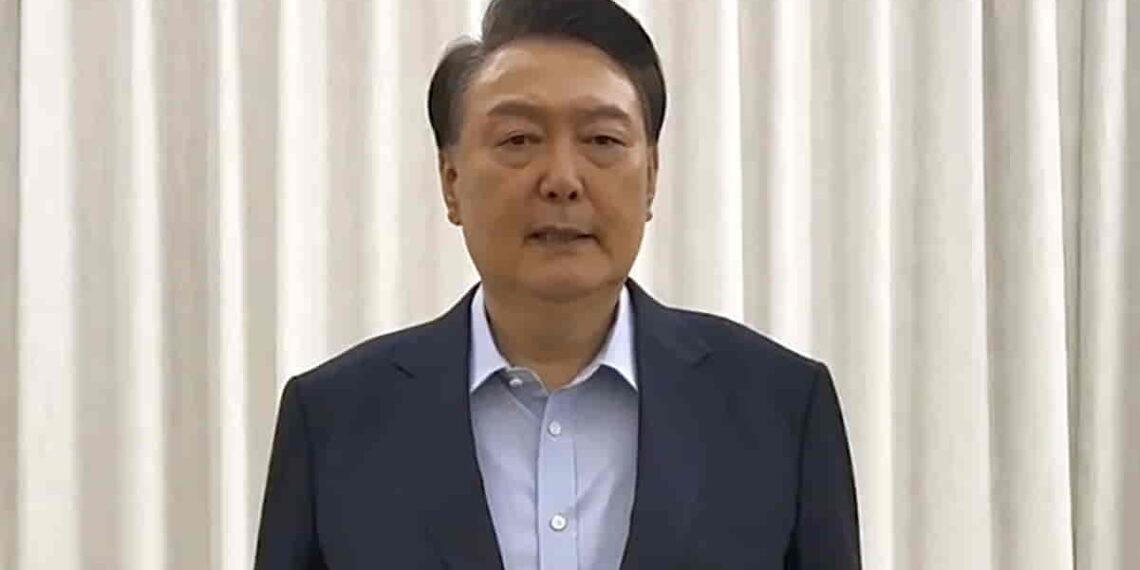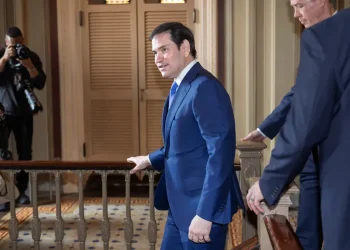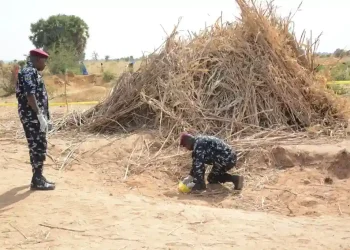South Korea’s Impeached President Yoon Detained in Massive Law Enforcement Operation
In a dramatic development on Wednesday, South Korea’s impeached President Yoon Suk Yeol was detained during a large-scale law enforcement operation at the presidential compound. Yoon, the country’s first sitting president to be apprehended, was taken into custody by the Corruption Investigation Office for High-Ranking Officials (CIO) after a tense standoff with presidential security forces.
Before his detention, Yoon recorded a video message, lamenting that the “rule of law has completely collapsed” in South Korea. He defiantly argued that the anti-corruption agency lacked the authority to investigate his actions but complied in an effort to avoid violence.
The Operation and Detention Process
Yoon had been holed up in his residence in Hannam-dong, Seoul, for weeks, vowing to “fight to the end” the impeachment efforts against him. The CIO and police initiated the detention operation early in the morning, encountering hours of resistance from the president’s security team at the compound gate. After a second attempt, they successfully entered the compound and reached Yoon’s residence.
A series of black SUVs, escorted by police, were seen leaving the presidential compound. Yoon was later transported to the anti-corruption agency’s office in Gwacheon. Following his questioning, he was expected to be moved to a detention center in Uiwang, near Seoul.
The Legal Battle Ahead
Yoon could remain in custody for several weeks. The anti-corruption agency, which is conducting a joint investigation with the police and military, has 48 hours to request a court order for a formal arrest. If granted, investigators can extend his detention for up to 20 days before transferring the case to public prosecutors for indictment. If no arrest is made within that timeframe, Yoon will be released.
Yoon’s presidential powers were suspended after the National Assembly impeached him on December 14. The Constitutional Court is now responsible for reviewing the case, which could result in his formal removal from office or reinstatement.
The Standoff at the Presidential Compound
The operation to detain Yoon involved a dramatic standoff at the presidential compound’s gates. Security forces initially obstructed the law enforcement team by placing buses and other vehicles at the entrance, but police and investigators eventually bypassed these obstacles, entering the compound. Despite a court-issued warrant for Yoon’s detention, presidential security insisted it was their duty to protect him, reinforcing the compound with barbed wire and barricades.
South Korea’s acting leader, Deputy Prime Minister Choi Sang-mok, urged both law enforcement and presidential security to avoid violence and ensure the operation proceeded smoothly.
A Divided Nation
The detention has sparked fierce reactions across the country. Lawmakers from the opposition Democratic Party, which spearheaded Yoon’s impeachment, hailed the move as a “restoration of constitutional order.” Park Chan-dae, the party’s floor leader, described the detention as a crucial step towards ensuring democracy and the rule of law.
Meanwhile, Yoon’s supporters gathered in the streets near his residence, staging protests to demand his release. The People Power Party, Yoon’s political faction, decried the operation, calling it unlawful. Tensions between the two sides were monitored by thousands of police officers stationed around the compound.
The Martial Law Declaration and Impeachment
The situation stems from Yoon’s controversial declaration of martial law on December 3, which he justified as a necessary response to what he called an “anti-state” opposition. His imposition of martial law around the National Assembly was lifted after just a few hours when lawmakers were able to bypass the blockade.
On December 14, the opposition-led National Assembly impeached Yoon on charges of rebellion. The Constitutional Court held its first hearing in the impeachment case on Tuesday, though it lasted less than five minutes due to Yoon’s refusal to attend. The court’s next hearing is scheduled for Thursday, and proceedings will continue regardless of Yoon’s presence.
Legal Challenges and Protests
Yoon’s legal team has argued that the detention warrant issued by the Seoul Western District Court was invalid. They cited a law protecting locations linked to military secrets, which requires consent from the person in charge—in this case, Yoon. They also contended that the anti-corruption agency lacked the legal authority to investigate rebellion allegations.
In his video message before his detention, Yoon expressed outrage over what he described as “illegalities upon illegalities” in the investigation. He stated that his compliance with the procedures was not an acknowledgment of their legality but a measure to prevent violence and chaos.
Yoon’s supporters and critics have held competing protests near his residence, with both sides expressing their views on the situation. Thousands of police officers have been deployed to monitor the tense environment.
Looking Forward
As Yoon’s legal battle unfolds, the nation remains divided over the impeachment process and the implications of his detention. With the Constitutional Court set to decide Yoon’s fate, the political and legal situation is expected to remain volatile, with further developments anticipated in the coming weeks.
This article was rewritten by JournosNews.com based on verified reporting from trusted sources. The content has been independently reviewed, fact-checked, and edited for accuracy, neutrality, tone, and global readability in accordance with Google News and AdSense standards.
All opinions, quotes, or statements from contributors, experts, or sourced organizations do not necessarily reflect the views of JournosNews.com. JournosNews.com maintains full editorial independence from any external funders, sponsors, or organizations.
Stay informed with JournosNews.com — your trusted source for verified global reporting and in-depth analysis. Follow us on Google News, BlueSky, and X for real-time updates.














